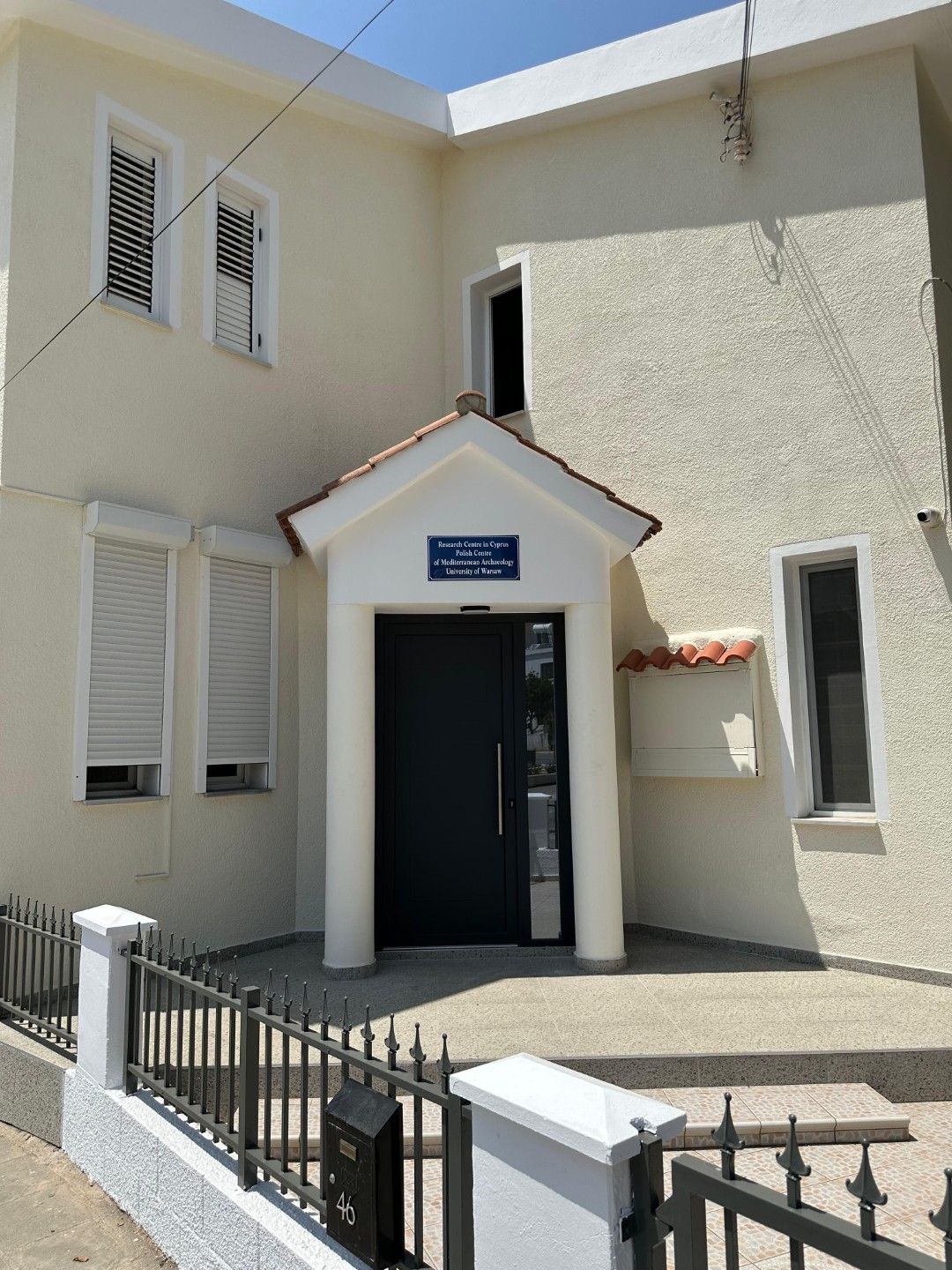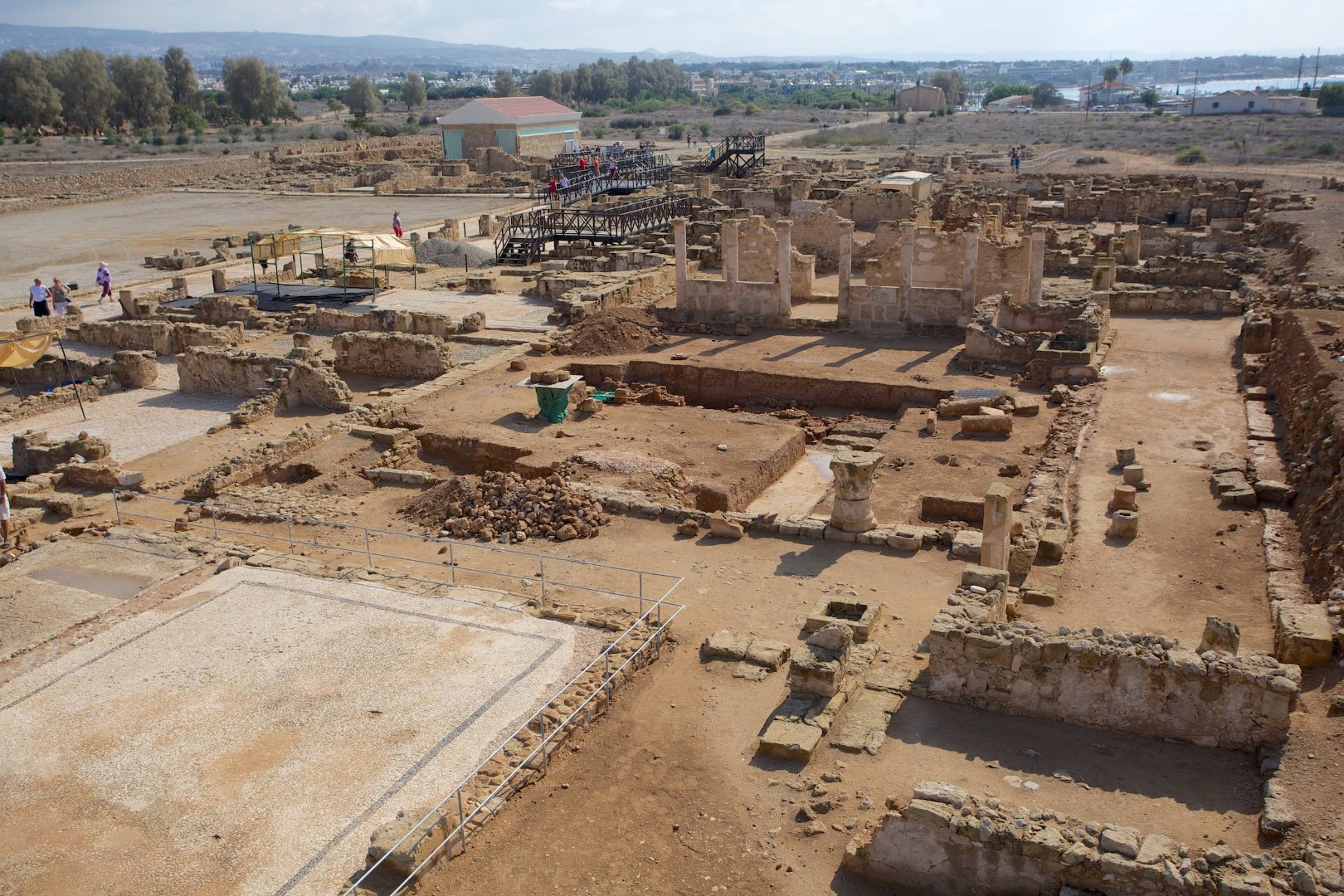Cyprus/ University of Warsaw opens archaeological research station in Paphos

The Centre of Mediterranean Archaeology of the University of Warsaw (CMA) opened its research station in Paphos, Cyprus, on Tuesday. "Polish researchers have been wandering around a bit like Odysseus, and now they will finally have their own place," Dr. Paweł Lech, deputy head of the station, told PAP.
The ceremony coincided with the celebration of the 60th anniversary of the presence of Polish archaeologists at the Nea Paphos archaeological site, a UNESCO World Heritage Site. It gathered numerous representatives of Cypriot and Polish authorities, including the Deputy Minister of Culture of Cyprus, Prof. Vasiliki Kassianidou, Undersecretary of State in the Ministry of Science and Higher Education of the Republic of Poland, Prof. Andrzej Szeptycki, the Mayor of Paphos, Phedonas Phedonos, and the Polish Ambassador to Cyprus, Marek Szczepanowski - Agnieszka Szymczak from the Central Anticorruption Center told PAP.
The celebrations began with a tour of the excavations of Polish researchers, followed by the opening of a photographic exhibition "From Malutena to Agora: 60 Years of Polish Archaeology in Nea Paphos, Cyprus". The evening was graced by a jazz concert by Grammy Award winner Włodek Pawlik.
For the duration of the ceremony, the city authorities closed the street where the newly opened station is located - located less than 2 km from the archaeological site.
"Polish research in Cyprus has yielded spectacular achievements, which would not have been possible without the excellent cooperation with the Department of Antiquities of Cyprus and the support of the Paphos city authorities," noted Prof. Ewdoksia Papuci-Władyka, head of the station and the joint expedition of the University of Warsaw and the Jagiellonian University in Nea Paphos, addressing the gathered representatives of the authorities of both countries, researchers and archaeology enthusiasts.
The director of the Central Anticorruption Centre, prof. Artur Obłuski, admitted that "the research station in Cyprus will not only be a logistical base for research teams, but also a centre for cooperation, education and dialogue". "We want it to be an open space - for researchers and students from Poland and abroad, as well as for the local community of Paphos", he added.

"The centre not only opens up new research perspectives, but also provides the expedition with previously unknown comfort and facilities, including a library and conference room, but also simply accommodation and office space," Dr. Paweł Lech, a member of the expedition conducting research in Nea Paphos and deputy head of the station, told PAP.
Answering the question about the impact of opening the station on the work of Polish archaeologists, he explained that "although Polish research in Paphos has been going on for 60 years, throughout this time archaeologists have not had a permanent place to live or work."
"A bit like Odysseus, we wandered around different places – we occupied houses, apartments, hotel rooms, which of course generated costs. And now we finally have our own place, where we can work not only during the few weeks of the year when excavations are underway, but all year round. Here we can study monuments, devote time to scientific work, and also comfortably present the results of our research to the local community," noted Dr. Lech.
During the event, the Polish Ambassador to Cyprus presented state decorations, including the Gold and Silver Crosses of Merit and the "Bene Merito" Badges of Honor, to people who made particular contributions to Polish-Cypriot cultural and scientific cooperation.
The PCMA UW Research Station in Cyprus is the fourth foreign research center of the University of Warsaw, alongside the Stations in Egypt, Sudan and Georgia. Its establishment – initiated by the decision of the UW Rector in 2021 – is part of broader activities internationalizing research conducted by the University of Warsaw - emphasized Agnieszka Szymczak.

The Nea Paphos archaeological complex includes the ruins of an ancient Greek and Roman city located near the port of the modern city of Paphos in Cyprus. Its most interesting discoveries include mosaics depicting Theseus in the labyrinth or Achilles bathing, paintings from the House of Aion depicting Apollo and the Muses, sculptures, silver coins and courtyard colonnades.
Science in Poland, Jakub Bawołek(PAP)
jbw/ zan/
The PAP Foundation permits free reprinting of articles from the Nauka w Polsce Service, provided that you inform us by e-mail once a month about the use of the service and provide the source of the article. In portals and internet services, please include the linked address: Source: naukawpolsce.pl, and in journals the annotation: Source: Nauka w Polsce Service - naukawpolsce.pl. The above permission does not apply to: information from the "World" category and any photographs and video materials.
naukawpolsce.pl




